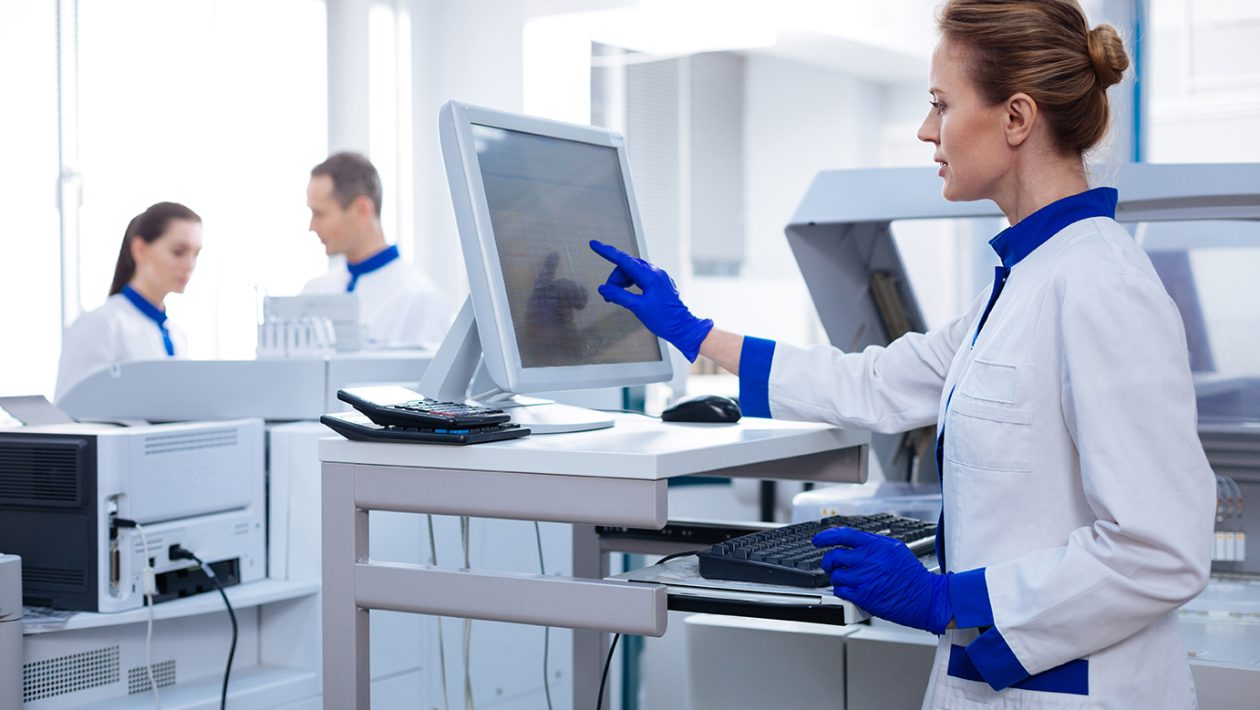Pathology labs are essential in modern healthcare as the disease diagnosis and management epicenter. Laboratory Information Systems (LIS) have significantly transformed these facilities, enhancing their efficiency and clinical diagnosis outcomes. To understand the full impact of LIS software in pathology labs, it’s esfsential first to explore the multifaceted roles these labs play.
Table of Contents
What Exactly is a Pathology Lab?
Pathology labs are akin to the investigative units of the healthcare sector. They meticulously analyze biological samples, helping to uncover the underlying causes of patient symptoms. These labs provide critical data that inform diagnoses, monitor disease progression, guide treatment decisions, and even fuel advancements in medical research.
Key Activities Include:
- Diagnosing Diseases: Pathology labs diagnose diseases at their earliest stages through detailed tests and analyses, which is crucial for effective treatment.
- Monitoring Disease Progression: Labs evaluate how diseases evolve, assessing treatment effectiveness and adjusting strategies as necessary.
- Supporting Medical Research: Beyond daily diagnostics, pathology labs contribute to research that develops new medical treatments and diagnostic tools.
With these pivotal roles in mind, let’s delve into how LIS software elevates the operational capabilities of pathology labs.
1. Enhanced Efficiency
LIS software automates the tracking of samples from receipt through analysis to reporting. This reduces the manual tasks required, speeds up processes, and minimizes human error, making lab operations smoother and more efficient.
2. Improved Accuracy of Data
Automated data entry and management reduce the risks of errors in recording and processing information. LIS ensures high accuracy in test results, which are fundamental for correct diagnoses and effective treatment plans. Accurate data means faster diagnosis and better patient care.
3. Workflow Standardization
LIS standardizes every aspect of the laboratory’s operations, from sample handling to result delivery. This uniformity ensures consistency in test results, irrespective of the technician or the time of day.
4. Regulatory Compliance
LIS helps pathology labs adhere to strict healthcare regulations by integrating compliance into the daily workflow. It automatically updates to reflect changes in regulations, ensuring that labs remain compliant with minimal effort.
5. Seamless Communication
By facilitating better integration with hospital information systems, LIS ensures that test results are swiftly and accurately communicated to relevant healthcare providers. This integration supports a more coordinated approach to patient care.
6. Data Security
LIS provides robust security protocols to protect sensitive patient data. It employs advanced security measures like encryption and access controls to prevent unauthorized access to medical records.
7. Advanced Reporting Capabilities
The system offers comprehensive reporting tools that allow lab managers to generate detailed performance reports, analyze trends, and make informed decisions based on real-time data.
8. Scalability for Growing Labs
As a lab grows, its needs become more complex. LIS is designed to be scalable, accommodating additional workloads and more sophisticated testing requirements without significant infrastructure changes.
9. Support for Research and Innovation
LIS manages vast amounts of data efficiently, making it an invaluable tool for medical research. It allows researchers easy access to historical data, facilitating studies that can lead to breakthroughs in diagnostic and treatment methodologies.
10. Cost-Effectiveness
By improving overall lab efficiency, reducing redundancies, and minimizing the need for repeat tests, LIS helps to cut operational costs significantly, making it a cost-effective solution for pathology labs. Although a new LIS is expensive to implement into a pathology lab, the opportunity cost of not using software is much greater.
Conclusion: Why LIS is Indispensable in Modern Healthcare
Integrating LIS into pathology labs marks a transformative advancement, streamlining operations and significantly enhancing the quality of patient care. As technology progresses, the importance of LIS in maintaining state-of-the-art lab operations and supporting high standards in healthcare will continue to grow.
Choosing a Pathology Software Vendor
When choosing a software provider, you’ll find the options are plentiful. Try to find a laboratory information system company with great reviews, an offer for a free demo and plenty of content on their website surrounding their software. You may need to have a lot conversations to find the right software, but it will be worth it in the long run.





